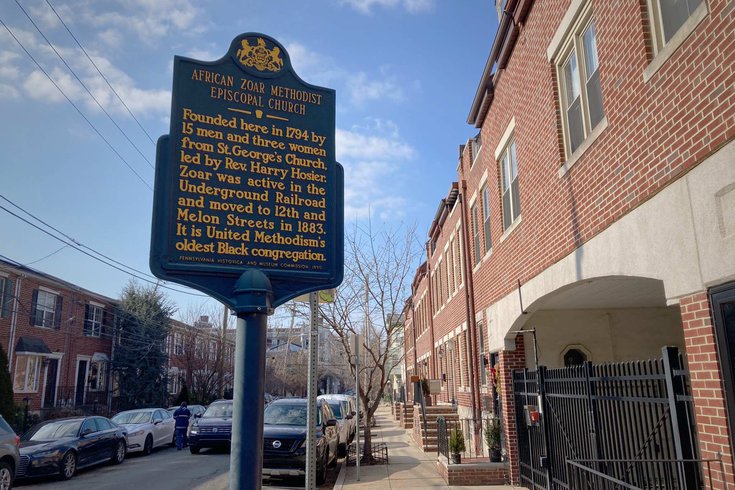
February 02, 2023
 Provided Image/Kory Aversa
Provided Image/Kory Aversa
Northern Liberties is celebrating Black History Month with audio walking tours centered around the stories of Black residents who lived in the neighborhood during the 1800s. The tours, which are self-guided and can be started at any time, will go live on Feb. 10.
Philadelphia is one of the most historically significant cities in the United States, and lingering evidence of its cultural and political past can still be seen on cobblestone alleys and pre-Civil War houses in many of the city's neighborhoods.
That includes Northern Liberties, which will host a self-guided audio walking tour to commemorate Black History Month.
The link to the audio tour will go live on Saturday, Feb. 10, focusing on the neighborhood's crucial connections to the Underground Railroad and helping to shed light on the people who lived and worked in the community in the years prior to the Civil War. Listeners can access it via their browser.
The self-guided tour begins at the corner of Second Street and Fairmount Avenue, which was once a bustling market center filled with vegetable peddlers, fish mongers and craftspeople selling goods. The community was largely made up of new European immigrants, free Blacks and working class residents, all of whom would stop to shop.
The second stop is at Third Street and Fairmount Avenue, where participants will learn about the history behind oyster and porter houses in historic Northern Liberties, where numerous Black residents worked for much of the 1800s.
The tour's third stop brings guests to Paschall's Alley, which is now called Wallace Street. A crucial stop on the Underground Railroad, the narrow alley helped numerous people gain freedom from slavery in other parts of the country, housing them in crowded tenements along Wallace Street and eventually finding them work in factories and businesses throughout the community.
Additional stops take participants to 405 Brown St., the former location of the African Zoar Methodist Episcopal Church, as well as Northern Liberties staples like Ortlieb's, which originated as a jazz club in 1987, and Standard Tap, which formerly housed the Bull's Head Hotel in the 1700s and 1800s.
Kristine Kennedy, executive director of Northern Liberties Business Improvement District, organized the audio tours after months of researching Census records and finding personal accounts from Black residents traveling through the Underground Railroad.
In particular, she drew information from William Still, an abolitionist and conductor on the Underground Railroad who kept records in order to reunite families that were torn apart by slavery.
"I kept trying to learn more about the Underground Railroad, but only found vague platitudes," Kennedy said in a release. "I wanted to know about the people and places that were a part of it."
Vinyl window clings will be installed at six storefronts in Northern Liberties to teach locals about Black residents who inhabited the neighborhood in the 1800s. Designed by graphic artist Monna Morton, they will be installed at Penn Herb Company, Suya Suya West African Cuisine, Casa Papel Papery, Stump Plants and El Camino Real.
Begins on Saturday, Feb. 10
Various locations in Northern Liberties
Philadelphia, PA 19123